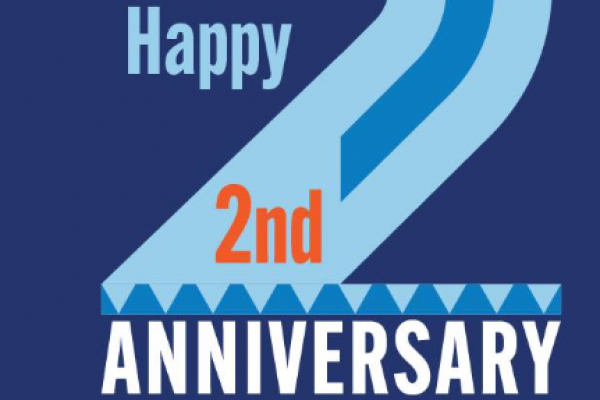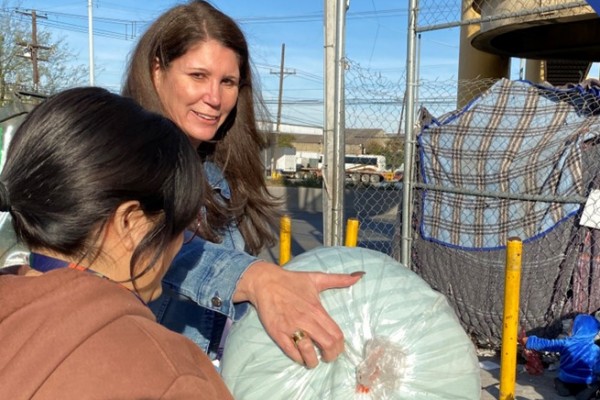
Snowflake Tree brightened holidays for 1,000+ kids worldwide
January 6, 2026
Afni employees' generosity made the holidays brighter for more than 1,000 children.
Read MoreSnowflake Tree brightened holidays for 1,000+ kids worldwide
January 6, 2026
Afni employees' generosity made the holidays brighter for more than 1,000 children.
Read More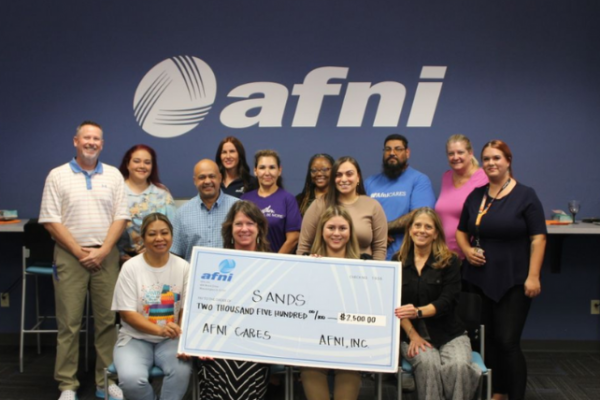
Afni joins 2025 SANDS Walk for Down Syndrome
December 4, 2025
Our Tucson team continues its tradition of supporting the SANDS Walk to spread awareness of Down syndrome. This year, we joined hands with families and advocates to help create a world where everyone feels valued and supported. It was a celebration of inclusion, awareness, and community spirit.
Read MoreAfni joins 2025 SANDS Walk for Down Syndrome
December 4, 2025
Our Tucson team continues its tradition of supporting the SANDS Walk to spread awareness of Down syndrome. This year, we joined hands with families and advocates to help create a world where everyone feels valued and supported. It was a celebration of inclusion, awareness, and community spirit.
Read More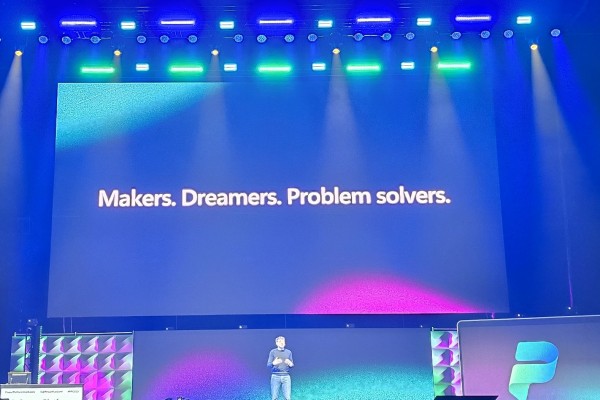
Afni Recognized for Helping Shape the Future of AI and Automation
November 6, 2025
Afni and its employees are gaining national recognition for leading the way in agentic automation and AI innovation. Two recent events have spotlighted how Afni’s people and technology are influencing the future of intelligent automation – from the global stage of Microsoft’s Power Platform Conference to UiPath’s elite Product Advisory Council.
Read MoreAfni Recognized for Helping Shape the Future of AI and Automation
November 6, 2025
Afni and its employees are gaining national recognition for leading the way in agentic automation and AI innovation. Two recent events have spotlighted how Afni’s people and technology are influencing the future of intelligent automation – from the global stage of Microsoft’s Power Platform Conference to UiPath’s elite Product Advisory Council.
Read More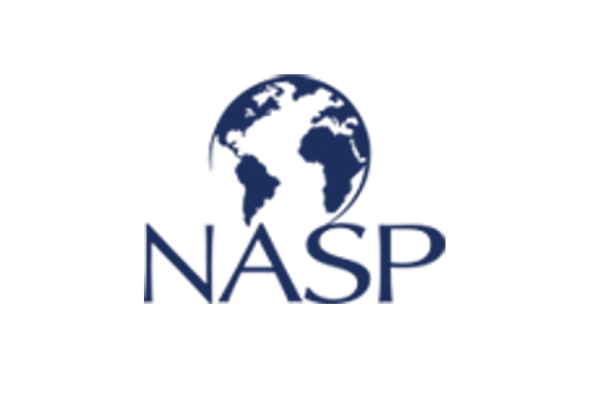
Sarah Powell Joins NASP Board of Directors
November 4, 2025
Afni is proud to celebrate Sarah Powell, Vice President of Sales, on her appointment to the National Association of Subrogation Professionals (NASP) Board of Directors. Sarah’s selection reflects not only her personal expertise but also Afni’s growing leadership and influence within the subrogation industry.
Read MoreSarah Powell Joins NASP Board of Directors
November 4, 2025
Afni is proud to celebrate Sarah Powell, Vice President of Sales, on her appointment to the National Association of Subrogation Professionals (NASP) Board of Directors. Sarah’s selection reflects not only her personal expertise but also Afni’s growing leadership and influence within the subrogation industry.
Read More
Mission accomplished: Customer Service Week 2025 highlights
October 16, 2025
Three countries, one mission: celebrate service with energy, heart, and a whole lot of fun. Our team went all in during Customer Service Week, turning every day into an adventure. Let’s rewind the highlights and relive the action!
Read MoreMission accomplished: Customer Service Week 2025 highlights
October 16, 2025
Three countries, one mission: celebrate service with energy, heart, and a whole lot of fun. Our team went all in during Customer Service Week, turning every day into an adventure. Let’s rewind the highlights and relive the action!
Read More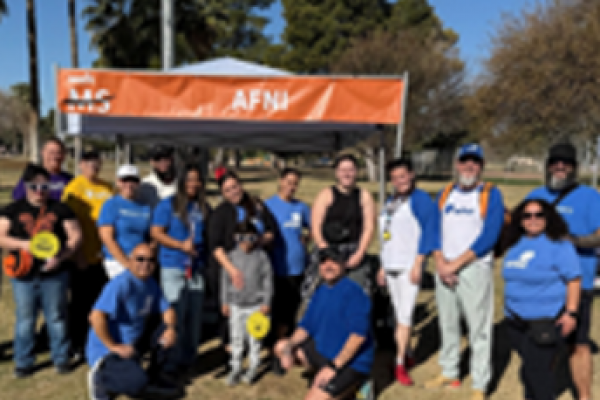
Southeast Tucson steps up for MS Walk!
March 26, 2025
We walked for MS (Multiple Sclerosis)! Our Southeast Tucson team joined hundreds at Reid Park to support the annual MS Walk.
Read MoreSoutheast Tucson steps up for MS Walk!
March 26, 2025
We walked for MS (Multiple Sclerosis)! Our Southeast Tucson team joined hundreds at Reid Park to support the annual MS Walk.
Read More
Snowflake Tree 2024: A season of giving and joy!
January 8, 2025
Afni employees' incredible generosity made the holidays brighter for countless children in our extended family. Discover how their kindness spread joy and magic in this heartwarming recap.
Read MoreSnowflake Tree 2024: A season of giving and joy!
January 8, 2025
Afni employees' incredible generosity made the holidays brighter for countless children in our extended family. Discover how their kindness spread joy and magic in this heartwarming recap.
Read More
Celebrate the season with our 2024 holiday video!
December 30, 2024
Holiday cheer is in the air at Afni! This year, employees from different departments across Mexico, the Philippines, and the United States came together to recite our special holiday poem, “‘Twas the Night Before Year End at Afni.” Experience the joy and creativity of our team as we celebrate another fantastic year!
Read MoreCelebrate the season with our 2024 holiday video!
December 30, 2024
Holiday cheer is in the air at Afni! This year, employees from different departments across Mexico, the Philippines, and the United States came together to recite our special holiday poem, “‘Twas the Night Before Year End at Afni.” Experience the joy and creativity of our team as we celebrate another fantastic year!
Read More
Afni WINS celebrates 2024 and plans for 2025!
December 18, 2024
Let’s celebrate the inspiring journey of WINS in 2024! From empowering women and fostering meaningful community connections to unveiling exciting plans for 2025, discover how WINS continues to inspire positive change at Afni and the community.
Read MoreAfni WINS celebrates 2024 and plans for 2025!
December 18, 2024
Let’s celebrate the inspiring journey of WINS in 2024! From empowering women and fostering meaningful community connections to unveiling exciting plans for 2025, discover how WINS continues to inspire positive change at Afni and the community.
Read More
Making a difference in the Tucson Community
December 4, 2024
At Afni, community involvement is at the heart of our core values. This fall, we proudly participated in several meaningful events, showcasing our commitment to making a positive impact in the Tucson area.
Read MoreMaking a difference in the Tucson Community
December 4, 2024
At Afni, community involvement is at the heart of our core values. This fall, we proudly participated in several meaningful events, showcasing our commitment to making a positive impact in the Tucson area.
Read More
Utilizing Analytics and AI in Performance Management
June 26, 2024
In today's customer-centric business environment, contact centers are crucial touchpoints between companies and their customers. Ensuring high performance and efficiency is essential, and Afni leverages analytics and AI to drive behaviors that enhance the customer experience.
Read MoreUtilizing Analytics and AI in Performance Management
June 26, 2024
In today's customer-centric business environment, contact centers are crucial touchpoints between companies and their customers. Ensuring high performance and efficiency is essential, and Afni leverages analytics and AI to drive behaviors that enhance the customer experience.
Read More
Afni employees level up their careers with Indiana Tech!
May 22, 2024
Our U.S. employees have boosted their careers and earned degrees, thanks to our empowering partnership with Indiana Tech! Offering scholarships, tuition reimbursement, and flexible online learning, we make education accessible for everyone. Read their inspiring stories here!
Read MoreAfni employees level up their careers with Indiana Tech!
May 22, 2024
Our U.S. employees have boosted their careers and earned degrees, thanks to our empowering partnership with Indiana Tech! Offering scholarships, tuition reimbursement, and flexible online learning, we make education accessible for everyone. Read their inspiring stories here!
Read More
Highlights from the Philippine's ACE Awards
April 26, 2024
Enjoy our highlight reel from the Philippine's annual Afni Champion Employee (ACE) awards ceremony, recognizing outstanding performance and contributions over the past year.
Read MoreHighlights from the Philippine's ACE Awards
April 26, 2024
Enjoy our highlight reel from the Philippine's annual Afni Champion Employee (ACE) awards ceremony, recognizing outstanding performance and contributions over the past year.
Read More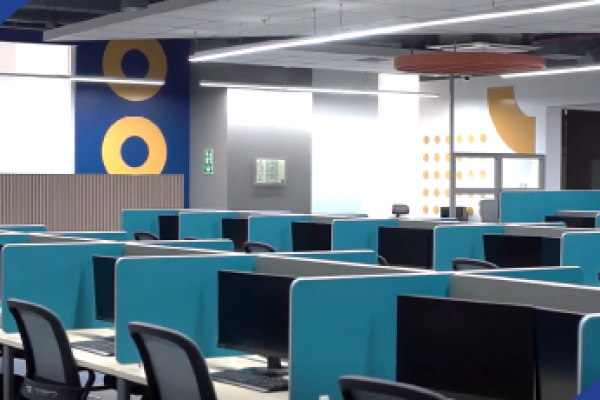
Afni expands operations in PH with new site in Santa Rosa, Laguna
April 13, 2024
Afni marked a significant company milestone today with the opening of its newest site in Laguna. It is currently the third office in the Philippines and the very first located outside of Metro Manila.
Read MoreAfni expands operations in PH with new site in Santa Rosa, Laguna
April 13, 2024
Afni marked a significant company milestone today with the opening of its newest site in Laguna. It is currently the third office in the Philippines and the very first located outside of Metro Manila.
Read More
Rising P-Pop Band Alamat Rocks Afni's Santa Rosa Launch
April 13, 2024
Rising Filipino pop group Alamat brought electrifying energy to the grand opening of Afni's newest site in Laguna, turning the event into a celebration of Filipino talent and the country's thriving business process outsourcing (BPO) industry.
Read MoreRising P-Pop Band Alamat Rocks Afni's Santa Rosa Launch
April 13, 2024
Rising Filipino pop group Alamat brought electrifying energy to the grand opening of Afni's newest site in Laguna, turning the event into a celebration of Filipino talent and the country's thriving business process outsourcing (BPO) industry.
Read More
Better Begins Here!
February 1, 2024
At Afni, we have your hand in every step of the way to becoming better—better for our clients and their customers.
Read MoreBetter Begins Here!
February 1, 2024
At Afni, we have your hand in every step of the way to becoming better—better for our clients and their customers.
Read More
Afni celebrates Grand Opening in Monterrey, brings job opportunities
January 19, 2024
Afni celebrated the opening of its first office in Mexico as part of its ongoing global expansion strategy to better support clients and provide more job opportunities.
Read MoreAfni celebrates Grand Opening in Monterrey, brings job opportunities
January 19, 2024
Afni celebrated the opening of its first office in Mexico as part of its ongoing global expansion strategy to better support clients and provide more job opportunities.
Read More
Happy Holidays from Afni
December 21, 2023
The 2023 holiday music video is here! Prepare for some surprise moves, loads of holiday spirit, and a fun seasonal celebration sure to make you smile and laugh.
Read MoreHappy Holidays from Afni
December 21, 2023
The 2023 holiday music video is here! Prepare for some surprise moves, loads of holiday spirit, and a fun seasonal celebration sure to make you smile and laugh.
Read More
Mike Schwermin and Khalid Khursheed earn promotions!
December 20, 2023
Exciting news! We’re thrilled to announce the well-deserved promotions of two incredible leaders who've helped shape our success: Mike Schwermin and Khalid Khursheed.
Read MoreMike Schwermin and Khalid Khursheed earn promotions!
December 20, 2023
Exciting news! We’re thrilled to announce the well-deserved promotions of two incredible leaders who've helped shape our success: Mike Schwermin and Khalid Khursheed.
Read More
Afni celebrated Family Day 2023 at Star City!
October 31, 2023
Family Day 2023 was full of thrilling rides, delectable treats, spooky activities, costume contests, most importantly, quality time with loved ones!
Read MoreAfni celebrated Family Day 2023 at Star City!
October 31, 2023
Family Day 2023 was full of thrilling rides, delectable treats, spooky activities, costume contests, most importantly, quality time with loved ones!
Read More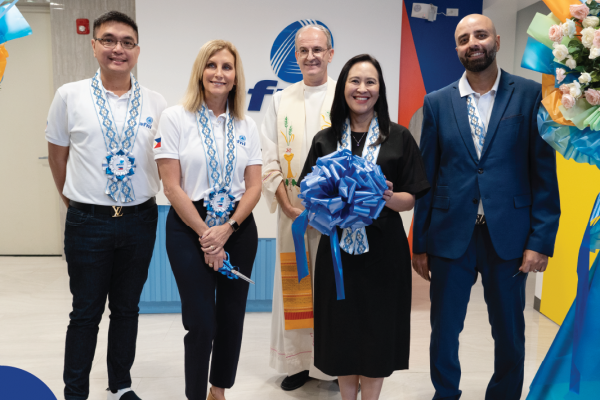
Joint Press Release: Afni expands Fairview site operations; QC Gov to help strengthen BPO community
October 23, 2023
Afni unveiled a new floor at its Fairview office on Friday as it scales operations in the Philippines.
Read MoreJoint Press Release: Afni expands Fairview site operations; QC Gov to help strengthen BPO community
October 23, 2023
Afni unveiled a new floor at its Fairview office on Friday as it scales operations in the Philippines.
Read More
Afni expands global footprint with new office in Monterrey, Mexico
August 1, 2023
Afni has announced the opening of its first office in Mexico, marking a significant milestone in its ongoing global expansion strategy. The new office in Monterrey is a testament to Afni's commitment to delivering exceptional customer experiences and further strengthening its presence in key markets.
Read MoreAfni expands global footprint with new office in Monterrey, Mexico
August 1, 2023
Afni has announced the opening of its first office in Mexico, marking a significant milestone in its ongoing global expansion strategy. The new office in Monterrey is a testament to Afni's commitment to delivering exceptional customer experiences and further strengthening its presence in key markets.
Read More
Celebrating award-winning employees at the Annual ACE Awards Banquet!
May 18, 2023
On Saturday, April 22, we hosted our Annual ACE Awards Banquet at The Elements at Centris in Quezon City. The night was a smashing success – truly an evening of glitz, glamour, camaraderie, and celebration of our highest-achieving and longest-tenured employees.
Read MoreCelebrating award-winning employees at the Annual ACE Awards Banquet!
May 18, 2023
On Saturday, April 22, we hosted our Annual ACE Awards Banquet at The Elements at Centris in Quezon City. The night was a smashing success – truly an evening of glitz, glamour, camaraderie, and celebration of our highest-achieving and longest-tenured employees.
Read More
Honoring the remarkable achievements of our first-generation REACH participants
May 5, 2023
We’re thrilled to announce the first generation of REACH program participants!
Read MoreHonoring the remarkable achievements of our first-generation REACH participants
May 5, 2023
We’re thrilled to announce the first generation of REACH program participants!
Read More
Snowflake Tree makes holiday wishes come true!
December 21, 2022
Helping members of the Afni family in need is a holiday tradition at Afni. This year, our employees' generosity will help make the holidays a bit merrier for over 1,000 kids in our extended family. Simply amazing.
Read MoreSnowflake Tree makes holiday wishes come true!
December 21, 2022
Helping members of the Afni family in need is a holiday tradition at Afni. This year, our employees' generosity will help make the holidays a bit merrier for over 1,000 kids in our extended family. Simply amazing.
Read More
Afni proudly opens our newest site in the Philippines
August 23, 2022
We officially opened our newest site in the Philippines with a Grand Launch event. Find out more about the site here.
Read MoreAfni proudly opens our newest site in the Philippines
August 23, 2022
We officially opened our newest site in the Philippines with a Grand Launch event. Find out more about the site here.
Read More
Security as a Business Enabler
August 17, 2022
Afni CISO Brent Deterding is featured in Interface Magazine - Technology and FinTech explaining how to position security and cyber effectiveness as a critical business enabler.
Read MoreSecurity as a Business Enabler
August 17, 2022
Afni CISO Brent Deterding is featured in Interface Magazine - Technology and FinTech explaining how to position security and cyber effectiveness as a critical business enabler.
Read More
Introducing Rex Schaeffer, VP of Legal and Chief Compliance Officer
August 2, 2022
Rex Schaeffer joins the Afni family as Vice President of Legal and Chief Compliance Officer.
Read MoreIntroducing Rex Schaeffer, VP of Legal and Chief Compliance Officer
August 2, 2022
Rex Schaeffer joins the Afni family as Vice President of Legal and Chief Compliance Officer.
Read More
A night of glam, rewards for Afni PH’s ‘champion’ employees
April 13, 2022
Afni Philippines’ top performers were treated to a night of glam and rewards at the annual Afni Champion Employee (ACE) Recognition Night.
Read MoreA night of glam, rewards for Afni PH’s ‘champion’ employees
April 13, 2022
Afni Philippines’ top performers were treated to a night of glam and rewards at the annual Afni Champion Employee (ACE) Recognition Night.
Read More
Afni promotes Kathy Poley to COO
March 14, 2022
We’re delighted to announce the promotion of Kathy Poley to the position of Chief Operations Officer (COO). From her start on a call center floor to roles in client services and strategic planning, she’s proven to be a high performing leader who delivers results and build strong relationships.
Read MoreAfni promotes Kathy Poley to COO
March 14, 2022
We’re delighted to announce the promotion of Kathy Poley to the position of Chief Operations Officer (COO). From her start on a call center floor to roles in client services and strategic planning, she’s proven to be a high performing leader who delivers results and build strong relationships.
Read More
Introducing our new CISO
February 28, 2022
We are excited to announce Brent Deterding has joined Afni as Chief Information Security Officer (CISO). Deterding will supervise and be responsible for our information and data security strategy, practices, and policies in this role.
Read MoreIntroducing our new CISO
February 28, 2022
We are excited to announce Brent Deterding has joined Afni as Chief Information Security Officer (CISO). Deterding will supervise and be responsible for our information and data security strategy, practices, and policies in this role.
Read More
Collaboration Drives Results
January 6, 2021
In 2005, leaders from a Top 10 P&C insurance company met with Afni to discuss options for improving their insurance subrogation recoveries. Fifteen years and additional services later, the partnership is still going strong.
Read MoreCollaboration Drives Results
January 6, 2021
In 2005, leaders from a Top 10 P&C insurance company met with Afni to discuss options for improving their insurance subrogation recoveries. Fifteen years and additional services later, the partnership is still going strong.
Read More
Arbitrations That Pay
July 2, 2020
A top 10 P&C Auto Insurance carrier was experiencing a backlog of arbitrations, but they were hesitant to outsource the work from their internal team. When they decided to give it a try, Afni proved they made the right decision in bringing their work to the experts. They got expert results.
Read MoreArbitrations That Pay
July 2, 2020
A top 10 P&C Auto Insurance carrier was experiencing a backlog of arbitrations, but they were hesitant to outsource the work from their internal team. When they decided to give it a try, Afni proved they made the right decision in bringing their work to the experts. They got expert results.
Read More
Subrogation Solutions That Perform
May 29, 2020
The pivot of the business process outsourcing (BPO) industry to a remote workforce introduced many potential security risks. Applying lessons learned from years of experience deploying work-from-home solutions, Afni put the right people, tools, and processes in place to safeguard our client partners and their customers.
Read MoreSubrogation Solutions That Perform
May 29, 2020
The pivot of the business process outsourcing (BPO) industry to a remote workforce introduced many potential security risks. Applying lessons learned from years of experience deploying work-from-home solutions, Afni put the right people, tools, and processes in place to safeguard our client partners and their customers.
Read More
Collections with a friendly (inter)face
May 20, 2020
Everyone agrees there are benefits to connecting with customers in their channel of choice. Consumer collections are no different. When Afni introduced live chat to a collection program, the results we saw were impressive.
Read MoreCollections with a friendly (inter)face
May 20, 2020
Everyone agrees there are benefits to connecting with customers in their channel of choice. Consumer collections are no different. When Afni introduced live chat to a collection program, the results we saw were impressive.
Read More
Simulated Learning Approach
December 16, 2019
Reduce time to proficiency and allow learners to experience their first interactions without negatively impacting the experience.
Read MoreSimulated Learning Approach
December 16, 2019
Reduce time to proficiency and allow learners to experience their first interactions without negatively impacting the experience.
Read More
Right Start Methodology: Success From The Start
December 13, 2019
Launch a new inbound consumer collections program with no interruption to service delivery or results.
Read MoreRight Start Methodology: Success From The Start
December 13, 2019
Launch a new inbound consumer collections program with no interruption to service delivery or results.
Read More




